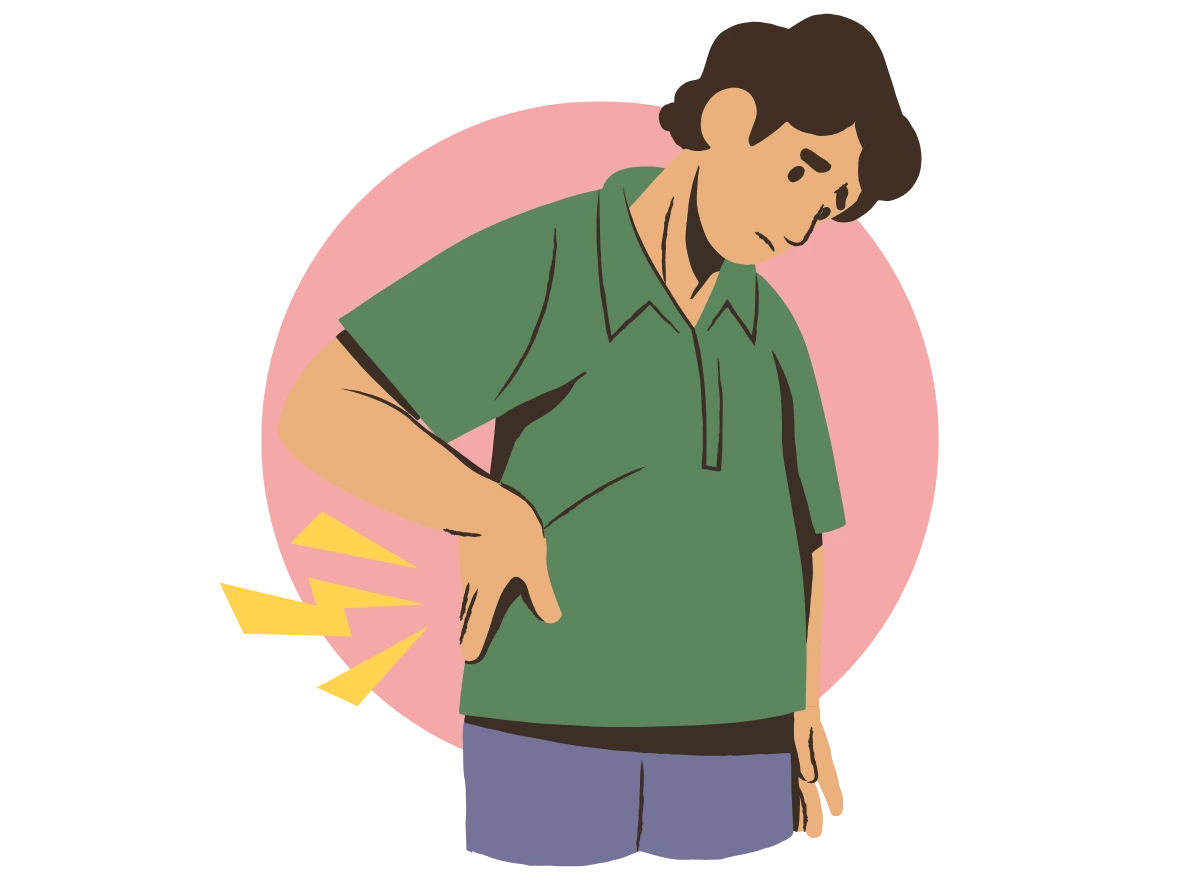
What Does the Science Say?
When CBD was first isolated from industrial hemp in 1940, it intially wasn't thought to be of much value. It wasn't until the 1970's when researchers began to see potential as a treatment for epilsepy, leading to a pivotal study in 1980 showing it could effectively reduce seizures [1]. This breakthrough sparked widespread research into cannabinoids, spurring investigation into anti-inflammatory, anti-anxiety, and many other potential benefits, giving it the worldwide recognition it has today.Please note: All statements made on this website are paraphrased from evidence reported in the studies below.

Pain
Research has shown potential for CBD (and other hemp-derived compounds) to provide powerful anti-inflammatory and pain-relieving effects, improve physical function, and help reduce reliance on other medications, with minimal side effects reported.

In 2018, a placebo-controlled study took 29 individuals aged 35-79 who suffered from peripheral neuropathy (pain caused by nerve damage), to look at the effectiveness of applying CBD oil directly to the skin. It found that using a cream containing a total of 250mg CBD, up to 4 times daily, significantly reduced sharp and intense pains, as well as cold and itchy sensations when compared to the placebo group. The study took place over a 4-week period, with all results becoming apparent within 2 weeks and no adverse effects reported [2].

In 2018, a placebo-controlled study took 29 individuals aged 35-79 who suffered from peripheral neuropathy (pain caused by nerve damage), to look at the effectiveness of applying CBD oil directly to the skin. It found that using a cream containing a total of 250mg CBD, up to 4 times daily, significantly reduced sharp and intense pains, as well as cold and itchy sensations when compared to the placebo group. The study took place over a 4-week period, with all results becoming apparent within 2 weeks and no adverse effects reported [2].

A 2020 survey investigated the subjective results of CBD for 428 participants with osteoarthritis, rheumatoid arthritis and other autoimmune arthritis. Some key findings include:
Some adverse effects were reported, including dry mouth, drowsiness, changes in appetite, and dry eyes [3].

A 2020 survey investigated the subjective results of CBD for 428 participants with osteoarthritis, rheumatoid arthritis and other autoimmune arthritis. Some key findings include:
Some adverse effects were reported, including dry mouth, drowsiness, changes in appetite, and dry eyes [3].

A lab study from 2024 used human skin cells to show that Cannabidiol (CBD) and beta-caryophyllene (BCP), two compounds from hemp, have strong anti-inflammatory effects, especially when used together. Individually, CBD & BCP successfully lowered the levels of a variety of proteins which are known to cause inflammation, as well as many different inflammatory gene expressions. When combined however, their anti-inflammatory effects were much stronger - the study also mentioned that the compounds showed a great safety profile [4].

A lab study from 2024 used human skin cells to show that Cannabidiol (CBD) and beta-caryophyllene (BCP), two compounds from hemp, have strong anti-inflammatory effects, especially when used together. Individually, CBD & BCP successfully lowered the levels of a variety of proteins which are known to cause inflammation, as well as many different inflammatory gene expressions. When combined however, their anti-inflammatory effects were much stronger - the study also mentioned that the compounds showed a great safety profile [4].
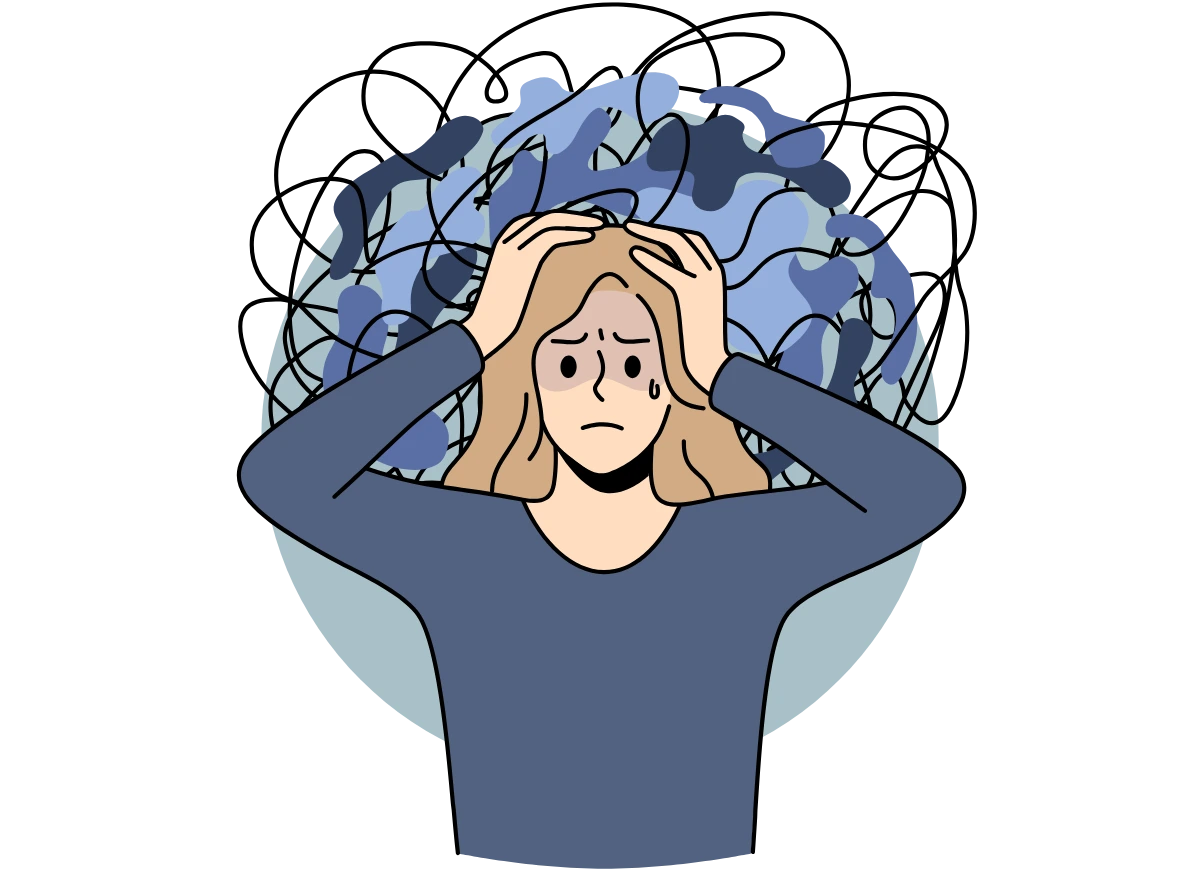
Anxiety
Studies suggest that CBD can help reduce anxiety by supporting the body's natural cannabinoid system, with extracts showing effectiveness in easing symptoms of anxiety, improving mood, and enhancing overall wellbeing, often with minimal side effects.

Where most studies use a CBD isolate, a 4-week trial with a full-spectrum CBD oil was conducted on 14 patients with at least a moderate level of anxiety. Each patient took 1mL of the oil, 3 times daily (totaling 30mg of CBD per day). By the end of week 1, most patients had noticed a significant reduction in anxiety (>15%) and by week 3, every single patient had tested for lower scores with anxiety as well as a better sleep, mood, and cognitive ability. This study suggests that taking a full-spectrum extract (rather than isolates) may yield superior results at lower doses, with fewer reported side effects [5].

Where most studies use a CBD isolate, a 4-week trial with a full-spectrum CBD oil was conducted on 14 patients with at least a moderate level of anxiety. Each patient took 1mL of the oil, 3 times daily (totaling 30mg of CBD per day). By the end of week 1, most patients had noticed a significant reduction in anxiety (>15%) and by week 3, every single patient had tested for lower scores with anxiety as well as a better sleep, mood, and cognitive ability. This study suggests that taking a full-spectrum extract (rather than isolates) may yield superior results at lower doses, with fewer reported side effects [5].

An Australian study in 2019 trialed a high-dose oral CBD isolate for young people who previously hadn't had success with standard anxiety treatments. The study involved 30 participants, aged 12-25, who had priorly been treating their anxiety for over 2 years (on average). The most common diagnoses were social anxiety, general anxiety, and panic disorders. After 12 weeks, 26 out of 30 participants had significantly improved levels of anxiety, averaging a 42.6% reduction in their overall symptoms. It also noted that depressive symptoms were reduced by 29.9%, and social functioning improved by 11.1%. By the end of the study, the number of markedly or severely ill patients decreased from 17 to 5. No serious adverse effects were reported [6].

An Australian study in 2019 trialed a high-dose oral CBD isolate for young people who previously hadn't had success with standard anxiety treatments. The study involved 30 participants, aged 12-25, who had priorly been treating their anxiety for over 2 years (on average). The most common diagnoses were social anxiety, general anxiety, and panic disorders. After 12 weeks, 26 out of 30 participants had significantly improved levels of anxiety, averaging a 42.6% reduction in their overall symptoms. It also noted that depressive symptoms were reduced by 29.9%, and social functioning improved by 11.1%. By the end of the study, the number of markedly or severely ill patients decreased from 17 to 5. No serious adverse effects were reported [6].

In 2019, an open-label case series was performed on adults with a documented anxiety diagnosis. Most patients were given 25mg of CBD every morning after breakfast, and while it was mostly used alongside standard psychiatric care and medication, it was often used as a method or avoid or reduce their medication dose. Within the first month of the CBD treatment, 79.2% of patients reported lower anxiety, which remained decreased for the remainder of the study [7].

In 2019, an open-label case series was performed on adults with a documented anxiety diagnosis. Most patients were given 25mg of CBD every morning after breakfast, and while it was mostly used alongside standard psychiatric care and medication, it was often used as a method or avoid or reduce their medication dose. Within the first month of the CBD treatment, 79.2% of patients reported lower anxiety, which remained decreased for the remainder of the study [7].

A 2014 study into the endocannabinoid system showed that a significant cause of stress-induced anxiety could be a deficiency in anandamide (AEA); a natural cannabinoid produced by our bodies! By conducting a series of experiments on rats, it found that anxiety-like behaviours significantly decreased in rats with elevated amounts of anandamide, and inversely, lower levels of anandamide were linked to more anxiety. It suggests that finding ways to boost our natural cannabinoid production, specifically anandamide, could be a preventative measure for anxiety, as well as an effective treatment after stress-related disorders have begun to manifest [8].

A 2014 study into the endocannabinoid system showed that a significant cause of stress-induced anxiety could be a deficiency in anandamide (AEA); a natural cannabinoid produced by our bodies! By conducting a series of experiments on rats, it found that anxiety-like behaviours significantly decreased in rats with elevated amounts of anandamide, and inversely, lower levels of anandamide were linked to more anxiety. It suggests that finding ways to boost our natural cannabinoid production, specifically anandamide, could be a preventative measure for anxiety, as well as an effective treatment after stress-related disorders have begun to manifest [8].
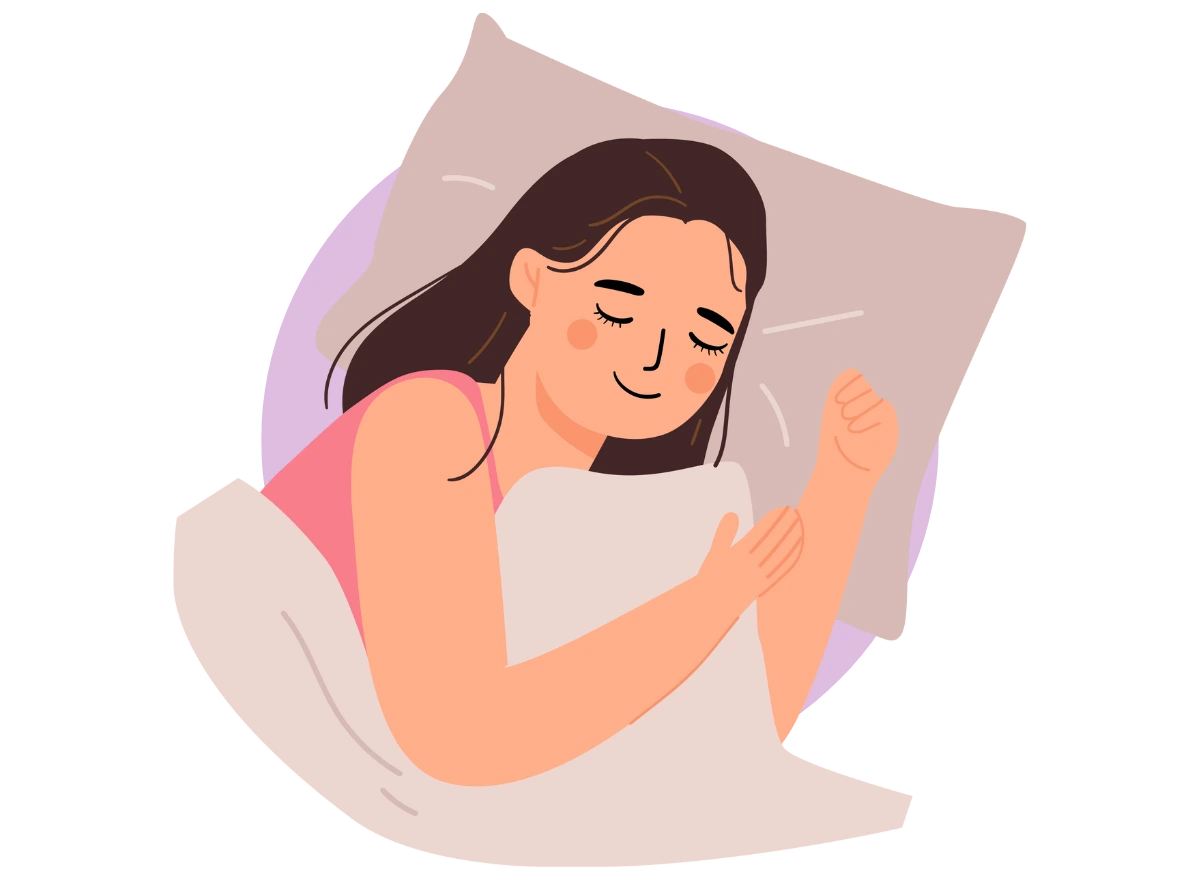
Sleep
Research indicates that CBD may improve sleep quality by reducing disturbances, enhancing restfulness, and supporting overall sleep health, with both low and higher doses showing positive effects in various conditions.

In 2022, an 8-week placebo-controlled trial looked at the benefits of low-dose CBD for sleep, in healthy college-aged individuals. There was a total of 28 participants who took 50mg of CBD isolate orally, 60-90 minutes before bed every night. At the end of the 8-week period, they rated their quality of sleep at a 79.2% improvement compared to just 24.5% for the placebo group. Whilst it didn't show an increase in sleep duration, it did reveal that those who used CBD experienced a 53.9% increase in feeling rested following sleep, compared to a 7.4% increase in the placebo group [9].

In 2022, an 8-week placebo-controlled trial looked at the benefits of low-dose CBD for sleep, in healthy college-aged individuals. There was a total of 28 participants who took 50mg of CBD isolate orally, 60-90 minutes before bed every night. At the end of the 8-week period, they rated their quality of sleep at a 79.2% improvement compared to just 24.5% for the placebo group. Whilst it didn't show an increase in sleep duration, it did reveal that those who used CBD experienced a 53.9% increase in feeling rested following sleep, compared to a 7.4% increase in the placebo group [9].

A placebo-controlled case series in 2011 looked at 4 cases of people with Parkinson’s Disorder, who suffer from parasomnia (kicking, talking, etc. during REM sleep). The average age of the patients was 63.5 years, most of which were given 75mg of CBD every night for 6 weeks. 3 of the 4 patients remained without any episodes of parasomnia for the entire study duration (compared to 2-7 episodes per week before CBD treatment), with the last patient taking 300mg of CBD daily to reduce his episodes from 2-4x weekly, to once per week. After the 6-week treatment concluded and patients were no longer taking CBD, their episodes returned with the same frequency and intensity as before. The placebo cases did not see any results [10].

A placebo-controlled case series in 2011 looked at 4 cases of people with Parkinson’s Disorder, who suffer from parasomnia (kicking, talking, etc. during REM sleep). The average age of the patients was 63.5 years, most of which were given 75mg of CBD every night for 6 weeks. 3 of the 4 patients remained without any episodes of parasomnia for the entire study duration (compared to 2-7 episodes per week before CBD treatment), with the last patient taking 300mg of CBD daily to reduce his episodes from 2-4x weekly, to once per week. After the 6-week treatment concluded and patients were no longer taking CBD, their episodes returned with the same frequency and intensity as before. The placebo cases did not see any results [10].

In many people, excess stress, trauma, and anxiety can be a major contributor to poor sleep. In 2011, a study was conducted to find the effects of CBD on stress-induced sleep disturbances. The experiment began by simulating anxiety in a group of rats, which were then subjected to micro-injections of CBD into the amygdala, a part of the brain responsible for fear and emotions. Results revealed that when the rats were given CBD, it effectively reversed the REM sleep suppression caused by anxiety, similar to that experienced by stress-induced insomnia [11].

In many people, excess stress, trauma, and anxiety can be a major contributor to poor sleep. In 2011, a study was conducted to find the effects of CBD on stress-induced sleep disturbances. The experiment began by simulating anxiety in a group of rats, which were then subjected to micro-injections of CBD into the amygdala, a part of the brain responsible for fear and emotions. Results revealed that when the rats were given CBD, it effectively reversed the REM sleep suppression caused by anxiety, similar to that experienced by stress-induced insomnia [11].
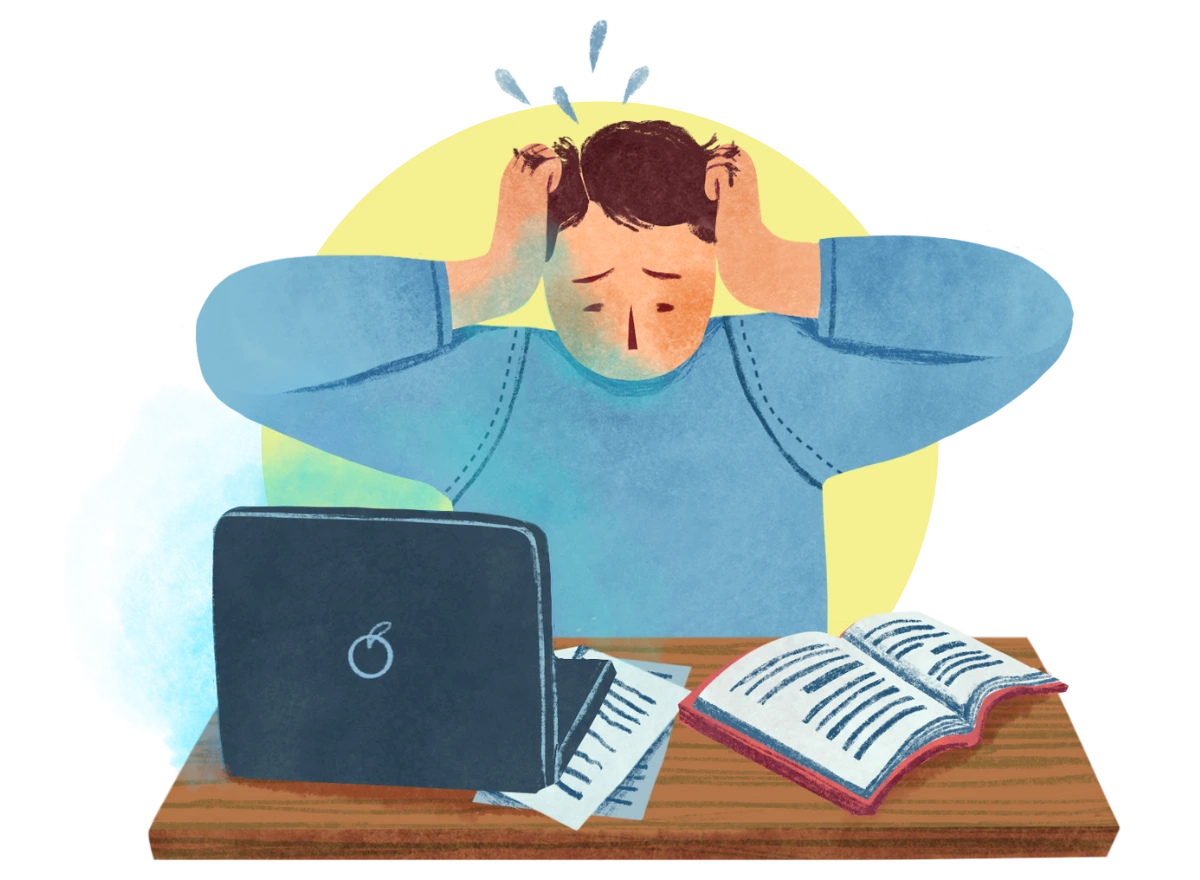
Stress
Many studies suggest that CBD has an ability to manage the body's stress response, reduce symptoms of burnout, aid with stress-related conditions, and even help to process traumatic memories. A lot of current research is now drawing connections between our stress response and our endocannabinoid systems.

An Australian review in 2021 analysed 7 placebo-controlled double-blind studies, and summarised that all of them showed CBD was significantly effective in reducing the stress-response, and was not inferior to the pharmaceutical comparators used. Some key findings include that a single dose of CBD was able to reverse THC-induced anxiety and lower the heart rate from THC-induced stress. It also noted that CBD help to reduce the stress-response in stress-induced anxiety, caused by a simulated public speaking test. Other highlights include CBD's ability to regulate abnormal cortisol responses, as well as a review of preclinical data which relates endocannabinoid levels to stress [12].

An Australian review in 2021 analysed 7 placebo-controlled double-blind studies, and summarised that all of them showed CBD was significantly effective in reducing the stress-response, and was not inferior to the pharmaceutical comparators used. Some key findings include that a single dose of CBD was able to reverse THC-induced anxiety and lower the heart rate from THC-induced stress. It also noted that CBD help to reduce the stress-response in stress-induced anxiety, caused by a simulated public speaking test. Other highlights include CBD's ability to regulate abnormal cortisol responses, as well as a review of preclinical data which relates endocannabinoid levels to stress [12].

In 2021, a clinical trial was conducted with 120 healthcare workers suffering from emotional exhaustion and burnout during the COVID-19 pandemic. Due to ethical reasons, it was not able to be placebo-controlled, but instead a research model where the participants knew whether they were in the CBD group or control group. The study revealed that adding CBD to their standard care protocol substantially reduced symptoms of burnout within just 14 days, compared to the group who received standard care alone. Significant improvements in anxiety and symptoms of depression were also noted, exclusively in the group taking CBD [13].

In 2021, a clinical trial was conducted with 120 healthcare workers suffering from emotional exhaustion and burnout during the COVID-19 pandemic. Due to ethical reasons, it was not able to be placebo-controlled, but instead a research model where the participants knew whether they were in the CBD group or control group. The study revealed that adding CBD to their standard care protocol substantially reduced symptoms of burnout within just 14 days, compared to the group who received standard care alone. Significant improvements in anxiety and symptoms of depression were also noted, exclusively in the group taking CBD [13].

A 2023 review on stress disorders (such as PTSD) drew connections between our endocannabinoid system (ECS) and stressful/traumatic events. Some key takeaways are that early life trauma had a far more significant effect on the endocannabinoid system than traumatic events in adulthood, and it also identified a role of the ECS in reducing fearful behaviour and extinguishing fearful memories. It looks at studies such as the 2013 clinical trial of individuals who developed PTSD from witnessing the World Trade Center attacks, and noted that they had significantly lower levels of endocannabinoids than non-PTSD people. The review concluded by theorising that CBD could help to combat the dysregulation caused by trauma or prolonged stress, and help to restore proper function of our stress response mechanisms [14].

A 2023 review on stress disorders (such as PTSD) drew connections between our endocannabinoid system (ECS) and stressful/traumatic events. Some key takeaways are that early life trauma had a far more significant effect on the endocannabinoid system than traumatic events in adulthood, and it also identified a role of the ECS in reducing fearful behaviour and extinguishing fearful memories. It looks at studies such as the 2013 clinical trial of individuals who developed PTSD from witnessing the World Trade Center attacks, and noted that they had significantly lower levels of endocannabinoids than non-PTSD people. The review concluded by theorising that CBD could help to combat the dysregulation caused by trauma or prolonged stress, and help to restore proper function of our stress response mechanisms [14].
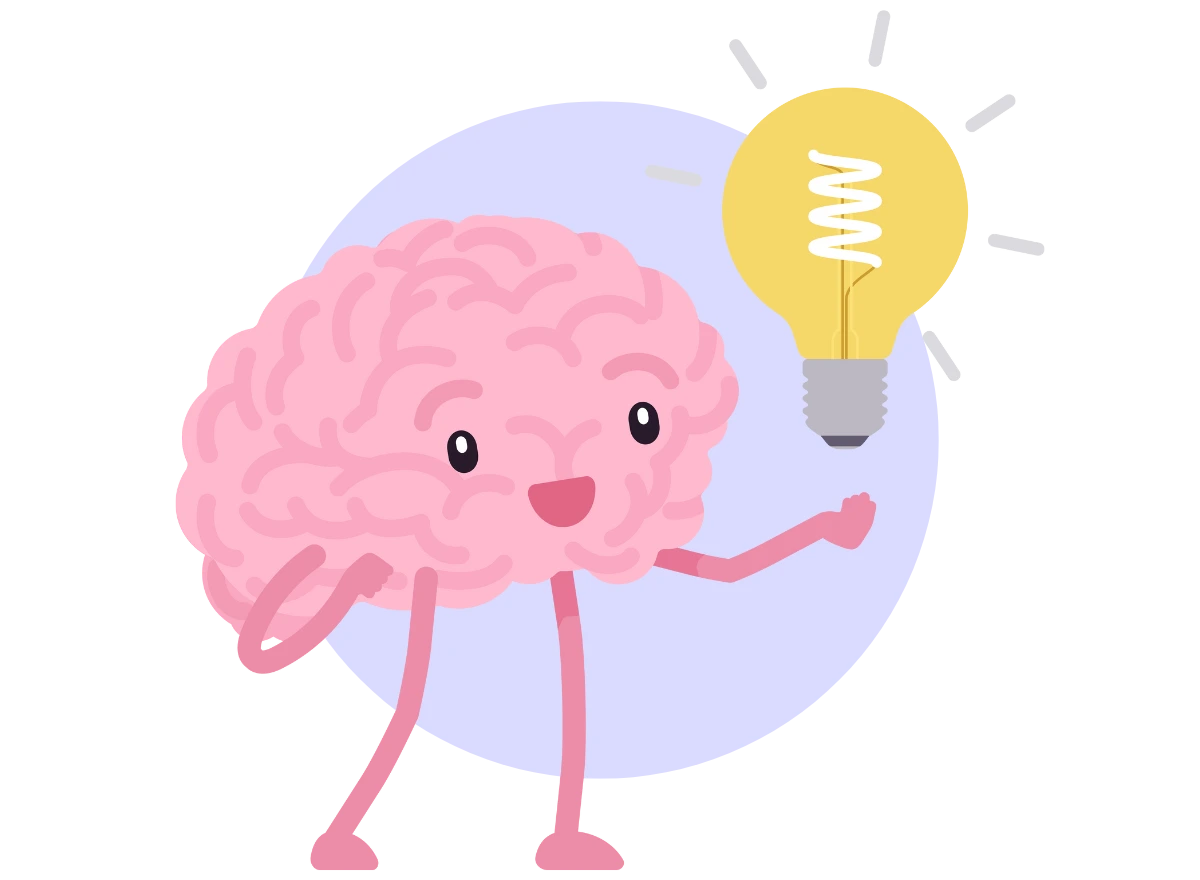
Neuroprotection
Evidence suggests that CBD may offer neuroprotective benefits by reducing inflammation, oxidative stress, and cell damage, while supporting brain recovery and function. Research highlights its potential to mitigate brain damage and injuries, by protecting neural pathways and promoting healing processes.

This 2020 review highlights the symptoms of concussion and mild traumatic brain injury (TBI) while exploring the potential therapeutic benefits of CBD as a treatment. It details how CBD may aid recovery by reducing neuroinflammation, regulating cerebral blood flow, supporting neurogenesis, protecting the brain from oxidative stress, and restoring the integrity of the blood-brain barrier [15].

This 2020 review highlights the symptoms of concussion and mild traumatic brain injury (TBI) while exploring the potential therapeutic benefits of CBD as a treatment. It details how CBD may aid recovery by reducing neuroinflammation, regulating cerebral blood flow, supporting neurogenesis, protecting the brain from oxidative stress, and restoring the integrity of the blood-brain barrier [15].

A 2013 study in Spain explored how CBD protects the brain using a model of hypoxic-ischemic (HI) brain injury in newborn pigs. HI is a form of brain damage, caused by reduced oxygen and blood flow to the brain, which leads to cell damage, disrupted brain activity, increased inflammation, oxidative stress, and harmful brain signaling. A CBD treatment of 1mg/kg prevented these effects, suggesting that CBD helps to reduce brain damage by targeting inflammation, oxidative stress, and cell overstimulation [16].

A 2013 study in Spain explored how CBD protects the brain using a model of hypoxic-ischemic (HI) brain injury in newborn pigs. HI is a form of brain damage, caused by reduced oxygen and blood flow to the brain, which leads to cell damage, disrupted brain activity, increased inflammation, oxidative stress, and harmful brain signaling. A CBD treatment of 1mg/kg prevented these effects, suggesting that CBD helps to reduce brain damage by targeting inflammation, oxidative stress, and cell overstimulation [16].
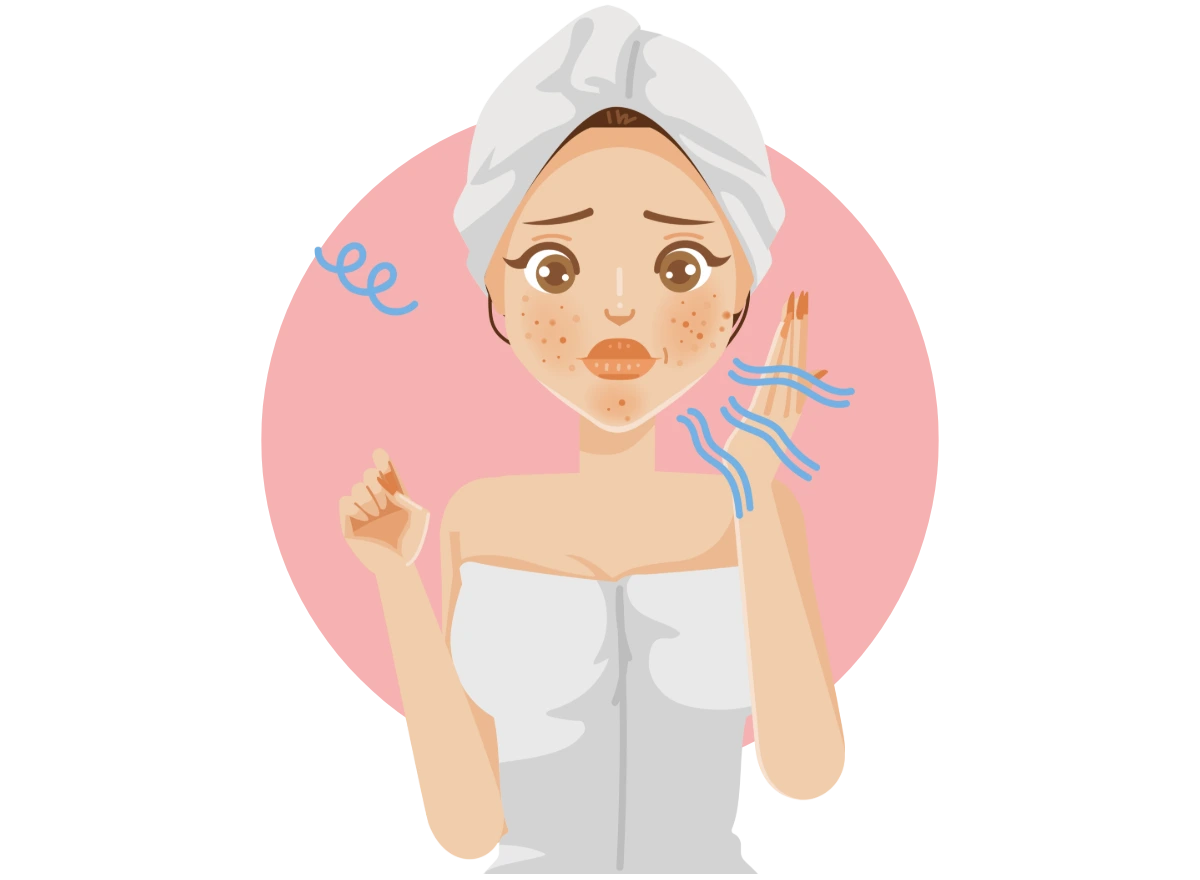
Acne
Hemp compounds have shown significant promise in managing acne and other skin conditions by regulating oil production, calming inflammation, and supporting skin repair. Its ability to interact with skin-specific cells and pathways highlights its growing potential as an option for various skin concerns.

A Hungarian study in 2014 found CBD to be effective in treating acne by controlling the production of oil in the skin (sebum), reducing inflammation, and limiting skin cell growth. When applied to skin cells, CBD was able to activate specific channels to stop certain chemicals from producing excess sebum and prevents skin cells from multiplying too quickly. Additionally, CBD has anti-inflammatory effects that help calm the skin. These combined actions make CBD a promising treatment for acne [17].

A Hungarian study in 2014 found CBD to be effective in treating acne by controlling the production of oil in the skin (sebum), reducing inflammation, and limiting skin cell growth. When applied to skin cells, CBD was able to activate specific channels to stop certain chemicals from producing excess sebum and prevents skin cells from multiplying too quickly. Additionally, CBD has anti-inflammatory effects that help calm the skin. These combined actions make CBD a promising treatment for acne [17].

A 2020 review looked into cannabis sativa and its compounds for all of their potential applications in skin health. With CBD being the most studied compound, it found a lot of promise in phytocannabinoids for treating various skin conditions; including acne, eczema, psoriasis, itching, and skin pain. The studies reviewed suggest that this is primarily due to the potent antioxidant and anti-inflammatory effects. Preclinical data also shows the ability to target skin-specific cells like keratinocytes (involved in skin structure), sebocytes (which produce oil), and fibroblasts (which help with skin repair) [18].

A 2020 review looked into cannabis sativa and its compounds for all of their potential applications in skin health. With CBD being the most studied compound, it found a lot of promise in phytocannabinoids for treating various skin conditions; including acne, eczema, psoriasis, itching, and skin pain. The studies reviewed suggest that this is primarily due to the potent antioxidant and anti-inflammatory effects. Preclinical data also shows the ability to target skin-specific cells like keratinocytes (involved in skin structure), sebocytes (which produce oil), and fibroblasts (which help with skin repair) [18].
Need more help? Let us know!
References
[1] Cunha JM, Carlini EA, Pereira AE, et al. Chronic administration of cannabidiol to healthy volunteers and epileptic patients.Pharmacology. 1980;21(3):175-185. doi:10.1159/000137430
[2] Xu DH, Cullen BD, Tang M, Fang Y. The Effectiveness of Topical Cannabidiol Oil in Symptomatic Relief of Peripheral Neuropathy of the Lower Extremities.Curr Pharm Biotechnol. 2020;21(5):390-402. doi:10.2174/1389201020666191202111534
[3] Frane N, Stapleton E, Iturriaga C, Ganz M, Rasquinha V, Duarte R. Cannabidiol as a treatment for arthritis and joint pain: an exploratory cross-sectional study.J Cannabis Res. 2022;4(1):47. Published 2022 Aug 24. doi:10.1186/s42238-022-00154-9
[4] Mazzantini C, El Bourji Z, Parisio C, et al. Anti-Inflammatory Properties of Cannabidiol and Beta-Caryophyllene Alone or Combined in an In Vitro Inflammation Model.Pharmaceuticals (Basel). 2024;17(4):467. Published 2024 Apr 7. doi:10.3390/ph17040467
[5] Dahlgren MK, Lambros AM, Smith RT, Sagar KA, El-Abboud C, Gruber SA. Clinical and cognitive improvement following full-spectrum, high-cannabidiol treatment for anxiety: open-label data from a two-stage, phase 2 clinical trial.Commun Med (Lond). 2022;2(1):139. Published 2022 Nov 2. doi:10.1038/s43856-022-00202-8
[6] Berger M, Li E, Rice S, et al. Cannabidiol for Treatment-Resistant Anxiety Disorders in Young People: An Open-Label Trial.J Clin Psychiatry. 2022;83(5):21m14130. Published 2022 Aug 3. doi:10.4088/JCP.21m14130
[7] Shannon S, Lewis N, Lee H, Hughes S. Cannabidiol in Anxiety and Sleep: A Large Case Series.Perm J. 2019;23:18-041. doi:10.7812/TPP/18-041
[8] Bluett RJ, Gamble-George JC, Hermanson DJ, Hartley ND, Marnett LJ, Patel S. Central anandamide deficiency predicts stress-induced anxiety: behavioral reversal through endocannabinoid augmentation.Transl Psychiatry. 2014;4(7):e408. Published 2014 Jul 8. doi:10.1038/tp.2014.53
[9] Kisiolek JN, Flores VA, Ramani A, Butler B, Haughian JM, Stewart LK. Eight Weeks of Daily Cannabidiol Supplementation Improves Sleep Quality and Immune Cell Cytotoxicity.Nutrients. 2023;15(19):4173. Published 2023 Sep 27. doi:10.3390/nu15194173
[10] Chagas MH, Eckeli AL, Zuardi AW, et al. Cannabidiol can improve complex sleep-related behaviours associated with rapid eye movement sleep behaviour disorder in Parkinson's disease patients: a case series.J Clin Pharm Ther. 2014;39(5):564-566. doi:10.1111/jcpt.12179
[11] Hsiao YT, Yi PL, Li CL, Chang FC. Effect of cannabidiol on sleep disruption induced by the repeated combination tests consisting of open field and elevated plus-maze in rats.Neuropharmacology. 2012;62(1):373-384. doi:10.1016/j.neuropharm.2011.08.013
[12] Henson JD, Vitetta L, Quezada M, Hall S. Enhancing Endocannabinoid Control of Stress with Cannabidiol.J Clin Med. 2021;10(24):5852. Published 2021 Dec 14. doi:10.3390/jcm10245852
[13] Crippa JAS, Zuardi AW, Guimarães FS, et al. Efficacy and Safety of Cannabidiol Plus Standard Care vs Standard Care Alone for the Treatment of Emotional Exhaustion and Burnout Among Frontline Health Care Workers During the COVID-19 Pandemic: A Randomized Clinical Trial.JAMA Netw Open. 2021;4(8):e2120603. Published 2021 Aug 2. doi:10.1001/jamanetworkopen.2021.20603
[14] Lookfong NA, Raup-Konsavage WM, Silberman Y. Potential Utility of Cannabidiol in Stress-Related Disorders.Cannabis Cannabinoid Res. 2023;8(2):230-240. doi:10.1089/can.2022.0130
[15] Singh J, Neary JP. Neuroprotection Following Concussion: The Potential Role for Cannabidiol.Can J Neurol Sci. 2020;47(3):289-300. doi:10.1017/cjn.2020.23
[16] Pazos MR, Mohammed N, Lafuente H, et al. Mechanisms of cannabidiol neuroprotection in hypoxic-ischemic newborn pigs: role of 5HT(1A) and CB2 receptors.Neuropharmacology. 2013;71:282-291. doi:10.1016/j.neuropharm.2013.03.027
[17] Oláh A, Tóth BI, Borbíró I, et al. Cannabidiol exerts sebostatic and antiinflammatory effects on human sebocytes.J Clin Invest. 2014;124(9):3713-3724. doi:10.1172/JCI64628
[18] Martinelli G, Magnavacca A, Fumagalli M, DellʼAgli M, Piazza S, Sangiovanni E. Cannabis sativa and Skin Health: Dissecting the Role of Phytocannabinoids.Planta Med. 2022;88(7):492-506. doi:10.1055/a-1420-5780
